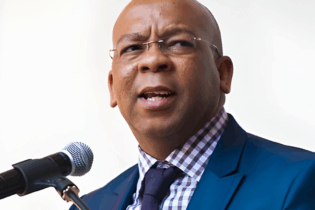
New US President Donald Trump
US markets took a downturn when Trump began to emerge as the victor over Democrat candidate and favourite Hillary Clinton. The US dollar dropped and stocks plummeted in the early hours of Wednesday morning as investors faced the possibility that Trump could win the presidency.
Investors looked to safe-haven assets, and sovereign bonds and gold surged while the Mexican peso went into near free-fall.
Ahead of the results, chief economist of Moody’s Analytics Mark Zandi went so far as to call a Trump win the US version of Brexit. And the situation has closely followed that which occurred in June when Britain voted to leave the European Union, with US stock futures recoiling more than 4.5%
Investors have expressed fear that Trump’s victory could cause global economic and trade turmoil and ultimately discourage the Federal Reserve from raising interest rates in December.
At the open of trading, even before Trump was named outright winner, stocks in London plunged over 4.3% and Australian and New Zealand markets followed suit.
Losses accelerated for Asian markets as the South Korean Kospi fell 3.4%, the Hang Seng Index in Hong Kong fell 2.97%, and the Japanese Nikkei 225 tumbled down 4.7%.
South Africa hit just as hard
The rand strengthened against hard global currencies on Monday afternoon ahead of the elections. This followed the announcement that the FBI had decided to close its investigation into Clinton, increasing her chances of winning – a move welcomed by global markets.
But the rand took a turn early this morning, tumbling as much as 4% along with other emerging market currencies as Trump took the lead. The rand has since rand recorded its largest fall in a single session since Brexit on June 24.
With the uncertainty surrounding what could be in store with Trump as president, the possibility still remains for South Africa to become a negative trade market as investors look to safer markets.
In addition, with the US being one of South Africa’s biggest trade partners, it is undoubtedly the case that the outcome of the election will have a direct bearing on the country. But at this stage it is unclear what Trump’s foreign policy on Africa is.
It is clear that, in the short term, the rand is most at risk. But, according to Razia Khan, chief economist, Africa at Standard Chartered Bank, as the market focus gradually shifts to the kind of policy we are likely to see, and the implications become clear of a Republican Congress and Presidency both in favour of further fiscal stimulus, there are likely to be more meaningful implications for sub-Saharan African markets.
No reason to panic
While Brexit caught the word off guard, markets did recover and, with time, markets are likely to recover from today’s upset as well. In fact, many investors have headed past events and prepared their portfolios for short-term falls.
According to data compiled by Bloomberg, the compulsion to act in the vote’s aftermath is often very strong and stocks swing twice as violently as normal on those days. In fact, stocks plummeted 5% just after Barack Obama beat John McCain in 2008.
It is now a waiting game to see if markets rebound quickly and whether Trump lives up to his established controversial stance.







